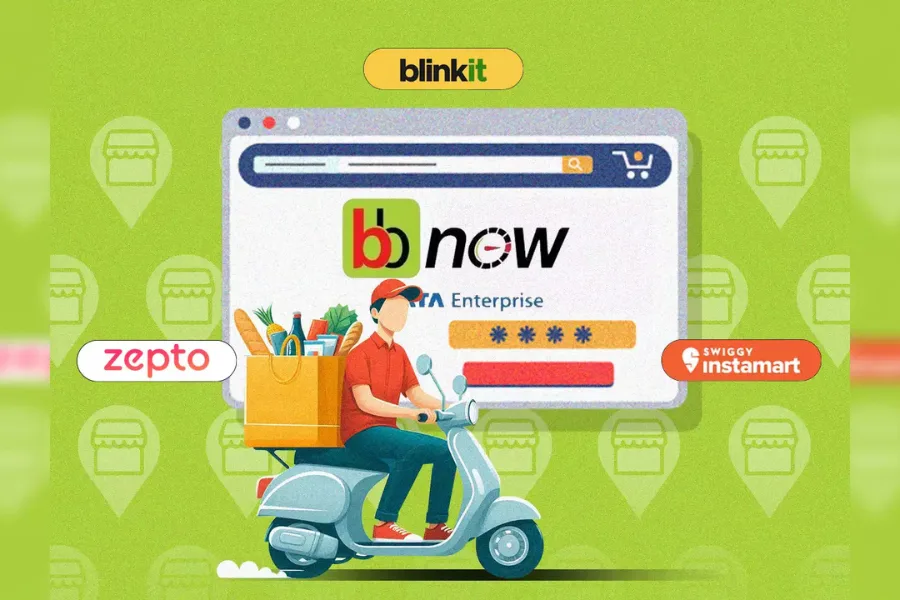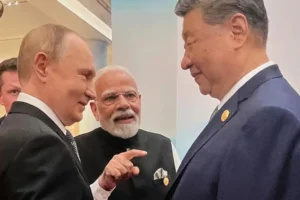
Historically viewed as the backbone of India’s retail ecosystem, the traditional kirana store is now facing existential threats. It is not from multinational giants like Amazon or Walmart, but from ultra-density delivery applications like Zepto, Blinkit, and Swiggy Instamart. These ultra-fast delivery apps, which promise delivery within 10 minutes, are changing consumer expectations. It led to many thousands of small, local shops to close.
200K Kiranas Closed in a Year
According to the All India Consumer Products Distributors Federation (AICPDF), approximately 200,000 kirana stores have shut down in the past year. Those closures are mostly in urban centers. Experts predict that by 2030, more than 25 percent of India’s 15 million kirana stores in India could disappear, if current trends continue.
What is the reason? Kirana stores cannot compete on speed, convenience, and deep discounts with the well-funded quick-commerce apps. Several of these apps are still growing at a loss.
Emerging Retail Confrontation
For decades, kirana stores have successfully resisted the growth of domestic and international retail giants. Many had partnered with larger firms like Amazon, Flipkart, and Reliance Retail to act as delivery or pick-up sites. This is so that they can maintain relevance, even as modern e-commerce took root.
But quick-commerce apps are bringing a new kind of danger to the market. These services are only interested in fast, ultra-local delivery of product purchases averaging around 10–15 minutes. Weekly shopping in the market place now includes asking for a couple of pizza-flavoured snack crisps, chips, etc. A last-minute, impulse buy on groceries and snacks, and then a rainbow of consumer products, i.e., clothes and electronics. In big urban areas, convenience has trumped price, making traditional retailers face challenges and making it harder for them to compete.
“I don’t see a way to not get killed, delivered for free, in 10 minutes,” said Mahadev Waghji Patel. He owned Choice Mart in Mumbai for nine years, and then just closed two months ago. “The best option is to close and find another job.”
Trade Groups Call for Oversight
To encourage a fair playing field, groups like the All India Consumer Products Distribution Federation (AICPDF) are being proactive in urging that a Digital Competition Bill be passed. This proposed legislation would create minimum sale prices and outlaw predatory discounting – a very common tactic used by big quick commerce companies.
“They are undermining kiranas with products at lower-than-cost prices, which creates consumer distrust of these brick-and-morter shops,” said AICPDF President Dhairyashil Patil. “Many believe owners of the store are scalping them when, actually, they are hemorrhaging cash to get market share.”
The Competition Commission of India (CCI) is looking into various commercial practices including predatory pricing, the ownership of dark stores, and the lack of transparency regarding product expiry dates.
Pricing Pressure and Behaviour Change
Kirana store owners are saying that they can no longer compete on price or speed. Some people like Rajesh Gupta in Delhi are providing free delivery in their area to keep their loyal customers. Some like Patel are even buying products from an online shopping site to sell in their store when distributors have them priced higher.
“Patel said that when his delivery boy arrives, the customer has cancelled and ordered from Zepto instead.”
Quick-commerce companies also avoid traditional distributors by sourcing directly from brands which gives them better margins and access to newer products across a wide range of categories, including beauty, electronics, and home decor.
Cultural Significance and Personal Affiliation
In spite of increasing pressure, kiranas are still viable in many communities due to personal relationships, credit, or their cultural values. They are still serving customers who can not either afford to use apps or prefer not to use apps or even conduct a digital transaction in communities with varying income levels.
Surinder Singh a shopkeeper in New Delhi said, “Behind every apartment building is a group of families counting on us for essentials. These people do not order groceries from these apps – we are their lifeline.”
Some shopkeepers are also adjusting. With regular customers in Delhi, Balwant Singh created a WhatsApp ordering group, and has begun issuing digital receipts, personal birthday greetings, and discounts. “Its helps us stay connected and identify what sells,” he said.
What is Next for India’s Retail Sector?
The future for India’s kirana shops is uncertain as quick-commerce companies advance into Tier 2 and Tier 3 cities. While they have cultural and sentimental factors in their favour, increasing numbers of young, tech-savvy consumers are attracted to the more modern conveniences.
In a shifting retail landscape, latest news on business suggest there is an increased demand for regulation that keeps fair competition. The tension of instant gratification versus a local service is still ongoing; however, for many kiranas, the clock is ticking.








5zjxwl
**mitolyn official**
Mitolyn is a carefully developed, plant-based formula created to help support metabolic efficiency and encourage healthy, lasting weight management.